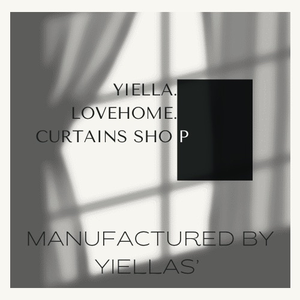Search
1/9
₱99.00 - 155.00
Buy 2, save 5%
Gray Colors of Ref Cover with pockets, with foam, made of geena and critona fabric
Sold by YIELLA LOVEHOME CURTAINS SHOP
4.6(71)
612 sold
Select options
Select
Shipping
From ₱36.00
Est. delivery by Apr 17 - Apr 21
Specifications
Customer reviews (71)

R**5
Item: D random design
Item receive in good condition love the design and quality super aesthetic maganda s paningin.thank u seller napagalang n kausap
also fast delivery recommended shop ⭐⭐⭐⭐⭐⭐⭐


December 18, 2024
P**h
Item: gray c
Ayus lang ang style, fit at materyal.. pero failed kayu sa kulay.. kelan pa naging Grey ang color black??🥴😩


October 19, 2024
J**a
Item: gray a
Material:Makapal ang tela
Characteristics:Maganda ang design


September 19, 2024

S**a
Item: gray c
Bagay na bagay sa kurtina nmen😍😍
Characteristics:Ganda

November 1, 2023

b**1
Item: gray a
Goods na goods bagay sa Ref namen tnx

August 9, 2024

R**0
Item: B exact design
Scent:100%
Material:100%
Cleanliness:100%
Characteristics:100%
March 5, 2025

J**a B**i J**s
Item: gray b
Maganda,useful yung mga pockets na nasa gilid niya🤩.
October 5, 2024

A**l D**a V**a J**
Item: black a
Ibang kulay ang dumating pero okay na Rin. Fast delivery naman
July 28, 2024

Y**t
Item: black a
AWESOME Item, ang ganda ng quality and pulido ang pagkakatahi. Worth buying
May 24, 2024
n**9
Item: gray c
Ok na ok..Tama lng po ung design na napili Koh ☺️☺️ thankyou
April 10, 2024

😶**L 😶**️
Item: gray c
Ganda naman..though Hindi lang sya Yung design na napili ko..pero okey na din,,Ganda quality..thanks
,👍👍👍👍👍👍👍👍👍👍👍👍
March 7, 2024
k**0
Item: D random design
Ang ganda nia sakto lng tnx po

December 29, 2024

V**o
Item: gray b
Nice product,thanks seller and delivery man.
April 21, 2024

S**a A**a
Item: gray a
Maganda my kumot na ref ko🥰thank u seller 🥰
April 7, 2024
T**ë
Item: gray b
Thanks seller. Recieved in good condition
October 8, 2024
t**e
Item: A exact design
Ok nman sakto sa ref ko.. thank you☺️☺️☺️☺️☺️☺️☺️☺️☺️☺️☺️☺️☺️☺️☺️☺️☺️☺️☺️☺️☺️☺️☺️☺️☺️☺️☺️☺️☺️☺️☺️☺️☺️☺️☺️☺️☺️☺️☺️☺️☺️☺️☺️☺️☺️☺️☺️☺️☺️☺️☺️☺️☺️☺️🙏☺️☺️☺️
March 14, 2025

P**9
Item: gray c
Thank you po. Mganda po xa
July 4, 2024

G**e M**a
Item: gray a
My order is gray but I received black..you should have informed if I agree to change the color of my order before sending it out.

July 1, 2024
r**️
Item: gray c
Legit ang Ganda♥️♥️♥️♥️♥️
May 8, 2024

r**p
Item: gray b
Goods na goods😍❤️❤️👍
June 22, 2024

YIELLA LOVEHOME CURTAINS SHOP
539 items
Shop performance
Better than 86% of other shops
Ships within 2 days
83%
Responds within 24 hours
97%
About this product
- Dust Cover Type:Refrigerator Cover
- Product Life:Reusable
- Material:Silk,Cotton
- Feature:Lightweight,Foldable,Adjustable,Rotatable
- Style:Traditional
- Quantity Per Pack:1
- Brand:on stock
Product description
BLACK & GRAY LOVERS - GEENA & CRITONA FABRIC TOP COVER WITH FOAM FOR REFRIGERATOR, REF COVER FROM DUST/STAIN/DIRT/WET, REF COVER WITH TOTAL OF 6 POCKETS ON LEFT & RIGHT USED FOR YOUR BILLS STORAGE AND OTHER SMALL ITEMS Direct Patahian️ & Always Onhand

Refrigerator Cover
We have many different colors available in many printed designs. Our ref cover is suitable to many ref in the market. We assure that the size will suit every ref market have. But this commonly used in a single fridge.
PLEASE READ
•We posted pictures for your references, but we might ship a different print and shade of color. Depending on what is available.
•PLEASE kindly send us a message for your second option of color incase your order is not available.
•Or else seller will pick randomly but with the same Family Color. We always changed our prints.
•*BUT WE ALWAYS DO SEND MESSAGE FOR ANY CHANGES OR BEFORE WE SHIP YOUR ITEM, WE ALWAYS SEND PHOTOS*
•Any feedback, request or mistake don't hesitate to send us a message. Any problem will be taken care of we value our customer right.
USEFUL-KNOWLEDGE FOR THE PRODUCT:
•Thermal insulation: The refrigerator cover helps to maintain a consistent temperature inside the refrigerator, preventing heat from entering and cold air from escaping. This improves energy efficiency and reduces electricity consumption.
•Protection against external elements: The cover acts as a barrier against dust, dirt, and other contaminants, keeping the refrigerator clean and extending its lifespan.
•Enhanced aesthetics: A refrigerator cover can be designed to enhance the appearance of the refrigerator, adding style and personalization to the kitchen or living space.
•Scratch and damage prevention: The cover provides a protective layer that helps prevent scratches, dents, and other physical damage to the refrigerator's surface.
•Noise reduction: Some refrigerator covers have additional insulation properties that can help reduce noise levels produced by the refrigerator's compressor and other components.
•Improved efficiency in hot climates: In hot climates, a refrigerator cover can help the appliance operate more efficiently by shielding it from excessive heat, which can put extra strain on the cooling system.
•Customization options: Refrigerator covers come in a variety of colors, patterns, and designs, allowing users to personalize their appliance to match their decor or personal style.
•Easy cleaning and maintenance: The cover can be easily removed and cleaned separately, simplifying the process of keeping the refrigerator clean and hygienic.
•Protection against UV rays: Some refrigerator covers offer UV protection, which helps prevent discoloration and damage caused by exposure to sunlight.
•Reduced condensation: By providing an additional layer of insulation, a refrigerator cover can help reduce condensation buildup on the exterior of the appliance, preventing water damage and improving its overall performance.
Videos for this product
Paid partnership
Paid partnership
Explore more from YIELLA LOVEHOME CURTAINS SHOP



Electric Fan Dust Cover Safety Cover Child Baby Anti-pinch Hand Protection Net Fan Cover Storage Bag
4.8
7946sold
₱101.03
₱140.32

4.5
37555sold
₱5.00
₱15.00

4.5
81942sold
₱5.00
₱15.00

Washing Machine Cover Double Tub Topload Sunscreen Waterproof Top Loading Washer Protector Polyester
4.5
25818sold
₱168.00
₱296.00


4.6
17486sold
₱69.00
₱150.00


4.8
7474sold
₱455.00
₱927.00

No more products
Open TikTok




































